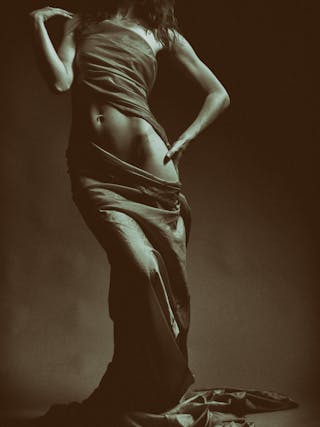Navigating Sexuality on Their Own Terms: Muslim Women Speak Out
Are you ready to break free from societal norms and embrace your sexuality on your own terms? At Devilish Desire, we believe in empowering women to redefine their dating experiences and express their desires without shame. Our latest review at Devilish Desire highlights how Muslim women are taking control of their sexuality and rewriting the rules of dating. Join us in celebrating the strength and confidence of these women as they navigate the world of love and intimacy with grace and empowerment.
In a world where stereotypes and misconceptions often dictate the narrative surrounding Muslim women, it's important to create space for their voices to be heard. This is especially true when it comes to discussions about sexuality and dating. For many Muslim women, navigating their own sexuality and relationships can be a complex and deeply personal journey, often influenced by cultural, religious, and societal expectations. In this article, we'll hear from Muslim women who are breaking free from these constraints and embracing their sexuality on their own terms.
Discover the exciting world of cage kink and why you should try it out!
Challenging Stereotypes and Misconceptions
If you're looking to add some excitement to your love life, check out the wide variety of adult toys for men available at Dating Help US and spice things up in the bedroom.
One of the biggest challenges that Muslim women face when it comes to discussing sexuality is breaking free from the stereotypes and misconceptions that often surround them. From the assumption that they are oppressed and submissive to the belief that they are not in control of their own bodies and desires, Muslim women often find themselves fighting against these preconceived notions.
Discover the best dating sites in Austria for a chance to find your perfect match in this beautiful country.
For Aisha, a 28-year-old Muslim woman living in the United States, challenging these stereotypes has been an ongoing battle. "People often assume that as a Muslim woman, I must be repressed and unable to make my own choices when it comes to dating and sexuality," she says. "But the truth is, I am empowered and in control of my own body and desires. I refuse to be defined by these stereotypes."
Empowerment and Agency
Despite the challenges they face, many Muslim women are finding ways to embrace their sexuality and relationships on their own terms. This often involves reclaiming their agency and asserting their right to make their own choices.
For Sarah, a 30-year-old Muslim woman from the UK, this empowerment has come through education and self-discovery. "I have spent years learning about my own desires and boundaries, and I refuse to let anyone else dictate them for me," she says. "As a Muslim woman, I am entitled to explore my sexuality and pursue relationships that bring me joy and fulfillment."
Navigating Cultural and Religious Expectations
For many Muslim women, navigating their sexuality also means balancing cultural and religious expectations with their own desires. This can be a delicate and nuanced process, often requiring them to find a sense of harmony between their personal beliefs and societal norms.
Hana, a 25-year-old Muslim woman from Canada, has grappled with this challenge throughout her dating journey. "I have always been mindful of the cultural and religious expectations placed upon me, but I refuse to let them limit my experiences," she says. "It's about finding a balance and staying true to myself while also respecting my heritage and beliefs."
Creating Space for Open Conversations
As Muslim women continue to navigate their sexuality on their own terms, it's crucial to create space for open and honest conversations about these experiences. This means challenging the taboos and stigmas that often surround discussions of sexuality within Muslim communities and beyond.
For Fatima, a 29-year-old Muslim woman from Australia, these conversations are essential for breaking down barriers and fostering understanding. "We need to create space for open dialogue about sexuality and relationships within our communities," she says. "By sharing our experiences and supporting one another, we can challenge the misconceptions and stereotypes that so often dictate the narrative surrounding Muslim women."
In conclusion, the experiences of Muslim women navigating their sexuality on their own terms are as diverse and multifaceted as the women themselves. By challenging stereotypes, reclaiming their agency, and navigating cultural and religious expectations, these women are carving out their own paths and embracing their sexuality in a way that feels authentic and empowering to them. As we continue to foster open conversations and support one another, we can create a world where Muslim women feel empowered to explore their desires and pursue relationships on their own terms.
- https://chatting.thehottieandthenottie.com/posts/best-sex-position-to-get-pregnant-how-to-get-pregnant/
- https://sex-chat.thehottieandthenottie.com/posts/best-lelo-sex-toys/
- https://dating-for-free.fu-direct.net/posts/reverse-cowgirl-reverse-cowgirl-sex-position-tips/
- https://singles-chat.ua-sex.com/posts/how-to-do-the-corkscrew-position-a-sex-expert-explains/
- https://dating.themountaintopplay.com/posts/easy-way-to-boost-your-sex-drive-how-to-increase-your-sexual-desire/
- https://personals-website.campsupernow.com/posts/strapons-best-sex-toys-for-pegging/
- https://flirting.themountaintopplay.com/posts/why-its-time-to-cut-the-bullsht-in-dating/
- https://sex-app.campsupernow.com/posts/best-sex-positions-41-of-the-best-sex-positions/
- https://dating.timebombrecordings.com/posts/my-best-sex-ever-was-the-first-time-i-had-sober-sex/
- https://sex-app.themountaintopplay.com/posts/how-to-use-anal-sex-toys-a-beginners-guide-to-using-anal-toys/
- https://matchmaker-website.thehottieandthenottie.com/posts/how-sex-can-feel-different-throughout-your-menstrual-cycle/
- https://fuck-apps.thehottieandthenottie.com/posts/how-to-ask-for-what-you-want-in-bed-and-during-sex/
- https://singles-chat.getweps.com/posts/vibrators-explained-sex-toy-language-az/
- https://find-singles.timebombrecordings.com/posts/phone-sex-operator-men-masturbate-to-my-voice-eight-hours-a-day/
